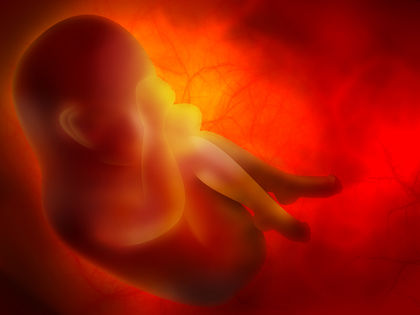Mental Retardation - Causes

In about one-third of all cases, the cause of mental retardation is not known. The remaining two-thirds of cases are thought to be caused by one of four factors: heredity, prenatal problems, childhood illnesses, and environmental factors.
Heredity
About 5 percent of mental retardation cases are caused by genetic factors. Genes are chemical units found in all cells. They carry the instructions that tell cells how they are to perform. In some cases, children inherit defective genes from their parents. These genes may interfere with the normal development of the child's brain. This may lead to mental retardation.
- Adaptive skills:
- The ability to carry out a large variety of ordinary tasks required to live successfully in the world.
- Fetal alcohol syndrome (FAS):
- A medical problem that affects a fetus and is caused by excessive drinking by the mother.
- Genes:
- Chemical units found in all cells that carry the instructions telling cells how they are to perform.
- Hydrocephalus:
- Accumulation of fluid in the brain; also known as "water on the brain."
- Hyperthyroidism:
- A condition in which the thyroid gland produces too much thyroid hormone, causing a variety of medical problems.
- Intelligence:
- The ability to learn and understand.
- Intelligence quotient (IQ):
- A numerical measure of a person's intelligence.
- Neural tube defect:
- A medical disorder in which a fetus's spine does not close normally.
Prenatal Problems
The daily choices a pregnant woman makes may affect the mental health of her fetus. For example, fetal alcohol syndrome (FAS) affects about 1 in 600 children in the United States. Fetal alcohol syndrome is caused by excessive drinking by the mother during pregnancy and can lead to mental retardation in the fetus. Drug abuse and smoking during pregnancy may also cause mental retardation in the fetus.
Infections in the mother may lead to mental retardation of the fetus. The infections may spread to the fetus and damage its nervous system, including its brain. High blood pressure and blood poisoning in a pregnant woman may also cause brain damage in a fetus, leading to mental retardation.
Fetal damage may occur naturally, for unknown reasons. An example is the problem known as neural tube defect. In this disorder, the fetus's spine does not close normally. Fluids may collect in its brain, producing a condition known as hydrocephalus ("water on the brain"; pronounced hi-dro-SEF-uh-luhs). One possible result of hydrocephalus is mental retardation.
Childhood Illnesses
Children sometimes experience serious infections. These infections may spread to the brain and cause it to become inflamed and swollen. These changes can damage brain cells and bring about retardation. Childhood injuries can also lead to mental retardation. A blow to the head or a violent shaking by an adult may cause brain damage and mental retardation.
Environmental Factors
Children who might otherwise develop normally sometimes become mentally retarded because of the environment in which they live. Poverty, malnutrition, unhealthy living conditions, and inadequate medical care may all increase a child's risk for mental retardation. Children who are neglected or abused often do not develop normally. Their native intelligence never gets a chance to express itself, and they become retarded.
Another important environmental factor is lead poisoning (see lead poisoning entry). Young children sometimes eat paint that has flaked off the walls of their home. This paint may contain the element lead. Lead has many harmful effects on growing children, one of which is damage to the brain.

Comment about this article, ask questions, or add new information about this topic: